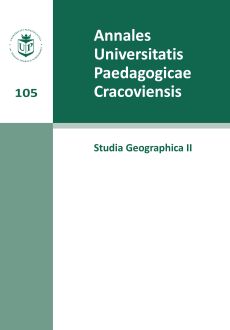Creativity and context in the works of Wacław Nałkowski
Keywords:
Wacław Nałkowski, philosophy, politics, social development, social groupsAbstract
Nałkowski lived in times of rapid transformation of civilization and during the period of ideological ferment, in a colonized country which at that time was Poland. Clearly disappointed with social and political reality, he turned his interest towards the trendy socialist ideas, seeing in them the hope for improving the living conditions of the society. The discerning analysis of the Nałkowski’s Social Writings (ed. 1951), allowed the author to assess the influence of the intellectual atmosphere on his activities and views. Although Nałkowski was a supporter of modern ideas, such as evolution, his intellectual independence and strength were the reason why he never became political activist. Moreover, he refused to join socialist movements and organizations. His ideological position and uncompromising character as well as the controversial, typical for him way of expressing opinions and views caused, that he was excluded from the political circles and condemned to an existence outside of academia, and often on the margins of intellectual life.
References
Jędrzejczyk D., 1999, Myśl geograficzna Wacława Nałkowskiego, Uniwersytet Warszawski, Warszawa.
Nałkowski W., 1951, Pisma społeczne, oprac. S. Żółkiewski, PIW, Warszawa.
Ortega y Gasset J., 2004, Bunt mas, Wyd. Muza, Warszawa.
Wilczyński W. i E., 1990, Wacław Nałkowski 1851–1911, [w:] Geographers. Biobibliographical Studies, vol. 13, G. Martin (red.), Mansell, London, s. 45–52.
Downloads
Published
Issue
Section
License
The submission of a paper to be published is synonymous with an agreement to transfer the copyright free of charge from the author to the publisher. The author also agrees to permit the publisher to publish the paper in printed form, open access online form, digital library form and other digital platforms with which the publisher has or will have a publishing agreement. Furthermore, the author agrees to not limit the number of copies that may be printed or issued by the publisher. In the case of co-authored papers, it is assumed that the corresponding author is authorized to represent the remaining co-authors in this respect. Authors are requested to sign a copyright declaration.

